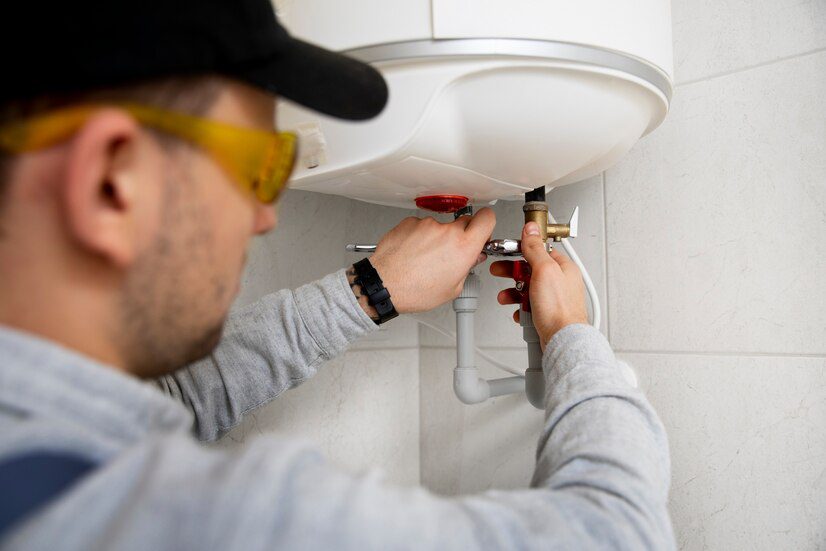It’s easy to take hot water for granted – until you don’t have any. Fortunately, water heaters rarely fail without notice. That is why it is critical not to disregard the signals that your water heater is nearing the end of its useful life. You can avoid being uncomfortable, sustaining damage from a leak, or incurring the expense of an unexpected breakdown if you learn how to recognize the warning indications that your water heater is about to fail.
If you face any issues with your home’s plumbing, contact us today. We offer the best services including faucet repair cambridge and are the best cambridge plumbing service.
What Makes a Water Heater Fail?
Before delving into the warning flags, it is useful to understand the components of your device. A typical water heater comprises a tank of water that is surrounded by protective linings. A conduit runs through the centre, enclosing the burners that heat the water. Depending on whether they are electric or gas-powered, they can be designed differently. An anode rod draws corrosive particles, extending the unit’s life.
A water heater’s usual lifespan is between 10 and 15 years. Several factors lead to the failure of a water heater. Anode rods deteriorate over time. Metal tanks have the potential to corrode or leak. Heating elements fail or cease to function. A part can sometimes be replaced. However, if your water heater continues to fail, you may be better off replacing the entire unit, especially if your current unit has been in service for ten years or more.
These signs can save you money and prevent the worst from happening
- Water pouring from the heating tank
Leaks are an indication that your water heater is deteriorating. You may notice water trickling from the tank or pooling beneath the unit. You might also notice water dripping from pipes.
It is conceivable that the valves are not entirely closed or that connections are loose. These components may need to be tightened or replaced, which are simple solutions. However, if the tank leaks, you must replace the water heater.
- The water heater’s age
Be cautious if your unit is old. Look for a label that includes an installation date. If it isn’t available, you can use the brand name and unit serial number to look up the date of manufacturing online. Purchasing a new water heater may help you save money.
- Quickly running out of hot water
If you haven’t cleaned your water heater on a regular basis or if your water contains a lot of sediment, such particles may accumulate in the tank. Since accumulated sediment makes less space for hot water, you run out of it quickly. It’s an obvious sign that your water heater is failing.
If the problem is not resolved quickly, it may be impossible to drain the silt out of the unit, resulting in clogged and corroded valves. The unit would then have to be replaced.
- Shower water temperature that varies
Another evident symptom that your water heater is failing is inconsistency in water temperature. If you’re lucky, you may only have a thermostat problem that can be fixed. If the heating elements are broken, you have a greater problem.
Consider your unit’s age yet again. It can be less expensive to replace it and enjoy the expense savings that come with a new energy-efficient water heater.
- Discoloured water flowing from faucets
Another common indication that your water heater is failing is murky or rusty water. Water heater tanks contain a coating that inhibits corrosion, but it does not last forever. Rust occurs quickly once the coating begins to thin.
Rusty water is one indicator that your hot water tank is failing. It is not inherently harmful to your health, but it can discolour and damage appliances. And it won’t taste nice. If the problem is minor, replacing the anode rods can help extend the life of your device. Consider flushing it as well.





